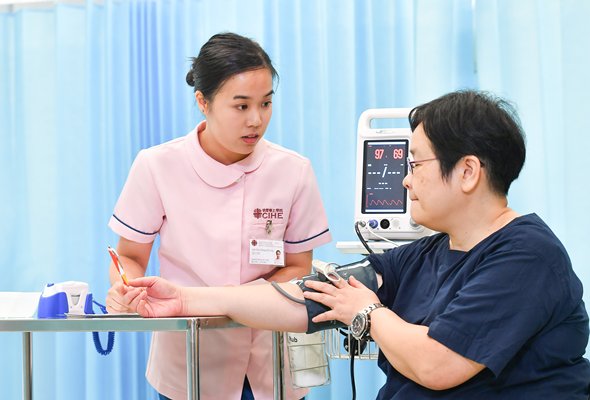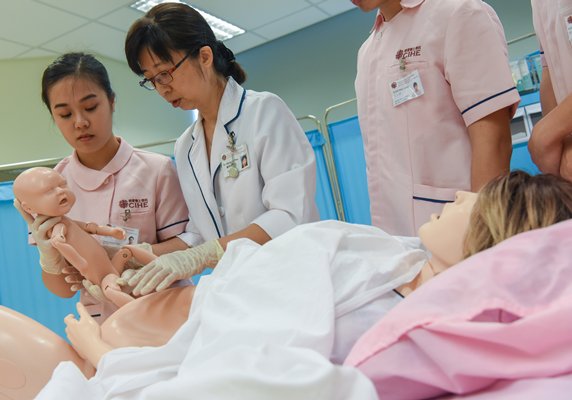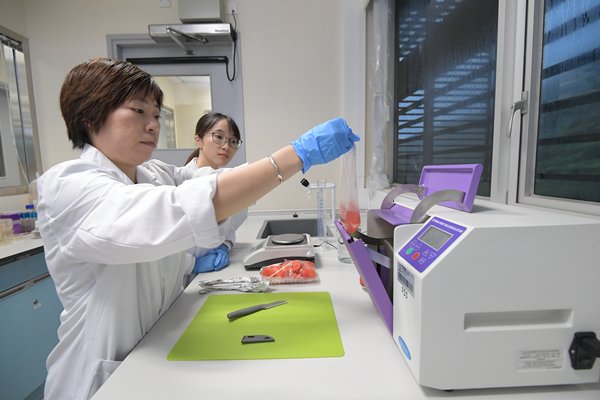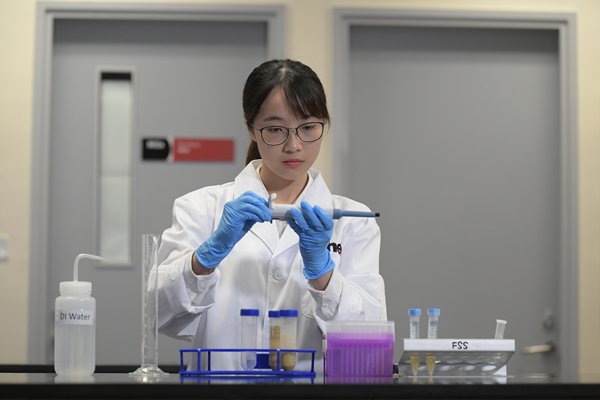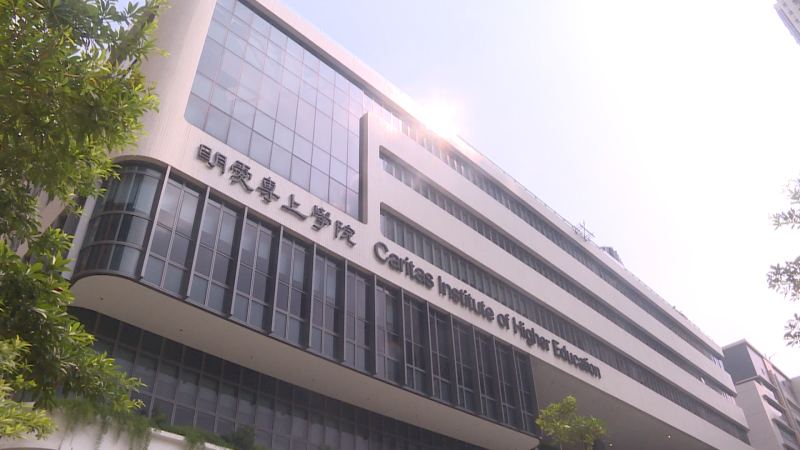Quality training nurtures talents
In her 2017 Policy Address, Chief Executive Carrie Lam said education is the key to nurturing talent and immediately set about boosting government expenditure on education.
A slew of priority measures has been rolled out for the sector including a non-means-tested subsidy for self-financing undergraduate students, regularising the Study Subsidy Scheme for Designated Professions/Sectors and increasing its number of subsidised places to help alleviate the financial burden of young people interested in learning and training in specific professions.
One such student is Christy Lui. Her childhood dream was to become a nurse. After passing her Hong Kong Diploma of Secondary Education exams, she joined the five-year full time nursing programme at the Caritas Institute of Higher Education - a decision that was inspired by her family.
“It is affected by my parents as they are both registered nurses. In my childhood, I have been exposed to many treatments. Therefore, I have increased my interest in being a registered nurse.”
The institute launched the Bachelor of Nursing Programme in 2015 and its graduates become registered nurses. The course is offered by the School of Health Sciences and its dean, Prof Eric Chan noted as Hong Kong's population expands and ages, the demand for health care services is increasing, and this programme can help meet the community’s soaring manpower needs.
To prepare students to enter the nursing profession to provide quality patient care, the institute is equipped with state-of-the-art laboratories and facilities, including an Infection Control Training Room where they can practise treating infectious disease patients.
There are also high-tech patient simulators that present a wide range of real-world scenarios with no risk to students or patients.
Investing in the future
The Bachelor of Nursing Programme is one of the programmes listed in the Study Subsidy Scheme for Designated Professions/Sectors. The scheme was launched in 2015 and became regularised in the 2018-19 academic year. The number of subsidised places since its launch has increased from about 1,000 to 3,000 per cohort and will increase to 3,236 per cohort in the 2019-20 academic year.
Under the scheme, a subsidy of up to $71,700 per academic year will be provided to each student admitted to a laboratory-based programme, while each student admitted to a non-laboratory-based programme will receive $41,000 per academic year. The annual subsidy amounts will be adjusted according to inflation.
Programmes under the scheme fall under 10 disciplines identified as having a keen manpower demand: health care, architecture and engineering, computer science, creative industries, financial technology, insurance, logistics, sports and recreation, testing and certification, and tourism and hospitality.
Prof Chan lauded the scheme for nurturing talent. He added that some students need to work part-time after class to support themselves, but with the subsidy, they could focus on their studies.
Broadening horizons
Since the 2017-18 academic year, the Government has been providing a non-means-tested annual subsidy for students pursuing full-time self-financing locally accredited local and non-local undergraduate programmes offered by participating institutions in Hong Kong.
Students like Doris Wu, who joined the Bachelor of Food Science & Safety Programme at the Hong Kong Technological & Higher Education Institute, stand to benefit from $30,800 in subsidies this year. Doris welcomed the much-needed support.
“Because of the scheme, the programme fee can be alleviated and I have more resources to enrich my integrated learning experience. Last summer, I joined an eight-day study tour to Germany to visit and access their food industry. It really broadened my horizons.”
Assistant Prof Emily Choi at the Institute’s Department of Food & Health Sciences said the programme equips graduates with both theoretical knowledge and practical skills in food science.
She believes the Government’s non-means-tested annual subsidy helps encourage students to join overseas exchange programmes to better understand the developments in international food safety, while at the same time broadening their horizons.
